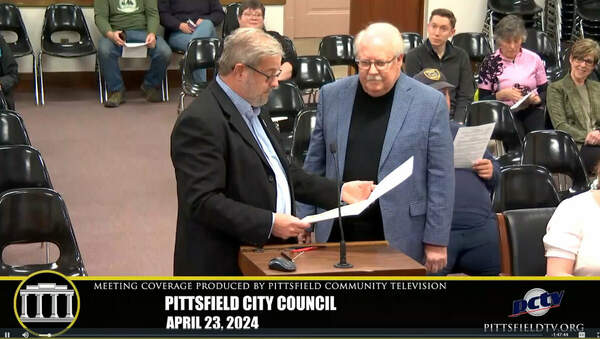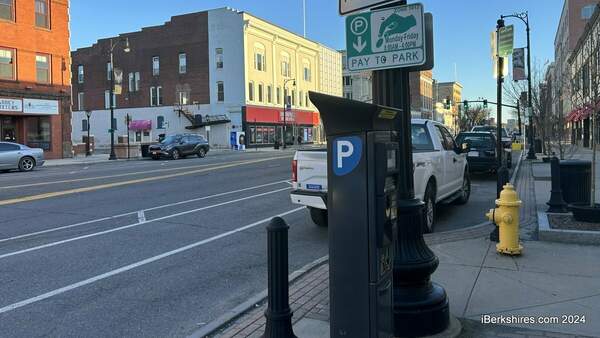Letter: Democratic Candidates That Are Right & Wrong on Filibuster
 |
To the Editor:
With the filibuster, for all practical matters, the Senate ignores the dictates of the Constitution that passage of a bill only require 50 percent Senate support. It makes a 60 percent Senate supermajority the requirement for actual passage. Elections are to have consequences, and the filibuster assures us that there are none, unless a 60 percent supermajority is obtained in the Senate.
The problem with the veto is that it thwarts the plan laid out in our Constitution. In practice, on almost any important bill, there needs to be 60 percent support of the Senate for it to pass, since a 60 percent vote support is required to end debate (cloture under Rule 22), which is way too difficult. The Senate could just change its rules. In the early years of Congress, a representative could filibuster in the House: but the House changed its rules. Calling this act a "nuclear option" is asinine.
Ordinarily, courts do not brook shenanigans that tolerate Congress passing laws in unconstitutional ways. Since the Constitution requires that laws be passed with bicameral support and the vote of the executive, vague laws that are administered by executive agencies but without sufficient guidance are often shot down in the courts. Usually, an executive agency passes a regulation, and there is a legitimately affected person that doesn't like the regulation and wants to sue. The affected party challenges the regulation saying that it was passed under a special law, an "enabling act," that was too vague. Vague enabling acts pass the business of passing laws to unaccountable administrative agencies. Under the "delegation doctrine," Congress cannot delegate its powers to pass laws to administrative agencies through broad delegations with few specifics.
Occasionally, an administrative agency's regulations will be shot down under the delegation doctrine. Those affected by regulation have standing to sue and argue that a particular regulation was passed by an agency under an enabling act without an "intelligible principle," thus being an unconstitutional delegation of powers by the legislature to the executive branch.
Laws can also be shot down for ignoring bicameral support and presentation in a way other an unconstitutional delegation of legislative authority. Sometime Congress wants to hold on to too much authority rather than give it away. Congress once tried to limit the power of the Executive, by giving themselves the power to override and "veto" the Executive branch's decisions while executing the laws. In one case in 1983, Congress passed a law that allowed the House of Representatives to veto INS's suspension of a deportation proceeding. The guy whose deportation was being suspended by INS (a man named Chadha) sued in federal court, saying that the legislative veto that allowed the House to overturn the suspension of deportation was an unconstitutional legislative veto: he won, and was not deported.
When Congress tries to bypass what the Constitution requires, there is some act of Congress, regulation passed by an administrative agency, or a ruling of an administrative law judge that an aggrieved party can point to and say, "hey, that's unconstitutional and that hurt me." This gives him standing to sue in federal court.
But the filibuster is another animal: it prevents laws from being passed in the first place. There is no law to point to and claim standing to sue as an injured party. There is only the absence of a law that might have been passed but for a filibuster. Whether the bill would have passed is dismissed as speculative damages — the bill might not have obtained 50 percent support in the Senate, and the President might not have signed it into law.
Courts have also ruled that the Senate is immune for lawsuit under the constitutional protections of the Speech and Debate Clause. Most courts simply rule that regular folks that might have benefited from the passage of a salutary bill have no standing, even if was highly likely to pass but for the Senate filibuster. The damage cause by the filibuster is far more extensive than that done by a violation of the delegation doctrine or legislative vetoes. Yet sadly, we have to look to the Senate, and not the courts for help. The courts steadfastly courts refuse "to say what the law is," despite Justice Marshall's admonition that this is "emphatically the duty of the Judicial Department"
Senator Warren wants to end the filibuster and she is right. Cory Booker, Bernie Sanders, and Kirsten Gillibrand are against ending the filibuster, and they are wrong. Kamala Harris is "conflicted," and she shouldn't be. As Vox reports, "this debate is important because there's no way almost anything the candidates are promising to do will happen unless the filibuster is lifted."
Warren has shown better judgment and understands the preeminence of process. Process is everything, for without a good process, nothing of substance can be done.
Rinaldo Del Gallo
Pittsfield, Mass.
Rinaldo Del Gallo is a local attorney who has been published in newspapers across the nation.















